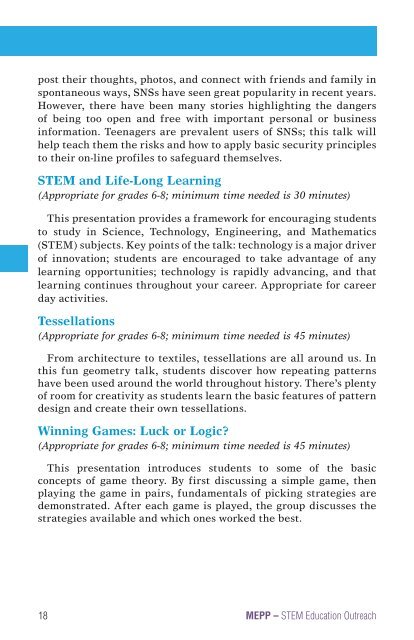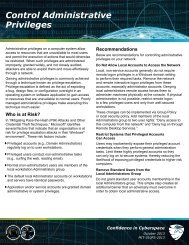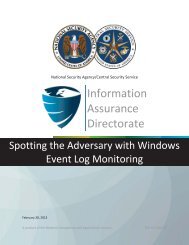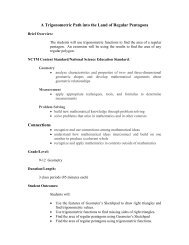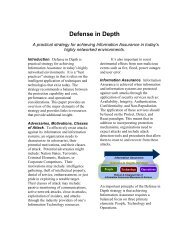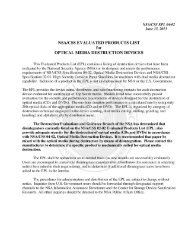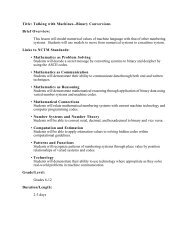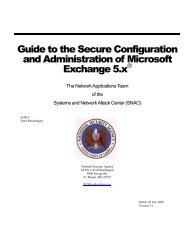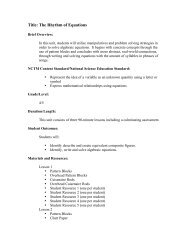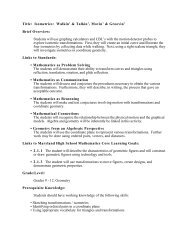Speakers Bureau Speakers Bureau - National Security Agency
Speakers Bureau Speakers Bureau - National Security Agency
Speakers Bureau Speakers Bureau - National Security Agency
You also want an ePaper? Increase the reach of your titles
YUMPU automatically turns print PDFs into web optimized ePapers that Google loves.
post their thoughts, photos, and connect with friends and family in<br />
spontaneous ways, SNSs have seen great popularity in recent years.<br />
However, there have been many stories highlighting the dangers<br />
of being too open and free with important personal or business<br />
information. Teenagers are prevalent users of SNSs; this talk will<br />
help teach them the risks and how to apply basic security principles<br />
to their on-line profiles to safeguard themselves.<br />
STEM and Life-Long Learning<br />
(Appropriate for grades 6-8; minimum time needed is 30 minutes)<br />
This presentation provides a framework for encouraging students<br />
to study in Science, Technology, Engineering, and Mathematics<br />
(STEM) subjects. Key points of the talk: technology is a major driver<br />
of innovation; students are encouraged to take advantage of any<br />
learning opportunities; technology is rapidly advancing, and that<br />
learning continues throughout your career. Appropriate for career<br />
day activities.<br />
Tessellations<br />
(Appropriate for grades 6-8; minimum time needed is 45 minutes)<br />
From architecture to textiles, tessellations are all around us. In<br />
this fun geometry talk, students discover how repeating patterns<br />
have been used around the world throughout history. There’s plenty<br />
of room for creativity as students learn the basic features of pattern<br />
design and create their own tessellations.<br />
Winning Games: Luck or Logic?<br />
(Appropriate for grades 6-8; minimum time needed is 45 minutes)<br />
This presentation introduces students to some of the basic<br />
concepts of game theory. By first discussing a simple game, then<br />
playing the game in pairs, fundamentals of picking strategies are<br />
demonstrated. After each game is played, the group discusses the<br />
strategies available and which ones worked the best.<br />
18 MEPP – STEM Education Outreach


